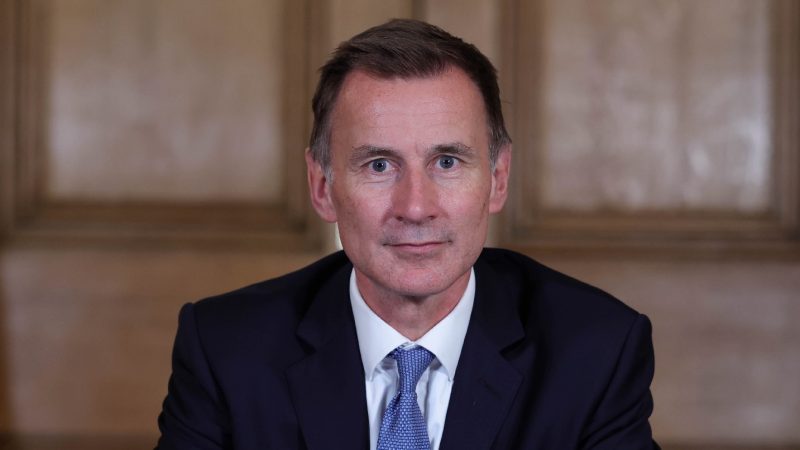'The government’s policies have delivered stagnation and misery. A new course needs to be charted.'

Prem Sikka is an Emeritus Professor of Accounting at the University of Essex and the University of Sheffield, a Labour member of the House of Lords, and Contributing Editor at Left Foot Forward.
After thirteen years of austerity, the UK economy is in poor shape and living standards are being eroded. The political elites need to abandon the neoliberal orthodoxies and give people hope for a better future.
The latest monthly bulletin from the Office for National Statistics shows that most sectors of the economy are flat lining. The UK remains the only G7 economy still smaller than before the pandemic.
The annual rate of inflation as measured by the consumer price index is 8.7%, and 11.3% when measured by the retail price index. Profiteering is a key reason for high inflation. Average British profit margins rose by almost a quarter since the end of 2019. This is because large sectors of the economy, such as oil, gas, energy, water, railways, electricity, banks, supermarkets, internet services and telecommunications, are dominated by monopolies and oligopolies. They have used their power to hike profit margins.
Profits are well ahead of labour costs. The average real wage is lower than in 2005. Some 14.4 million people live in poverty, including 4.2 million children, 8.1 million working-age adults and 2.1 million pensioners. However, the government continues with real pay cuts. This week, the government approved around a 6% pay rise for public sector workers, but without any extra spending i.e. spending on public services will be cut. Due to freezes on income tax and NIC thresholds and the effects of fiscal drag, the government collected additional £40bn in taxes in 2022-23, and will escalate. This revenue is not being used to boost people’s purchasing power.
Austerity is deepened with interest rate hikes, which increased to 5% in June 2023. People and businesses are being forced to hand more of their wealth to banks. In April 2023, the interest payable on central government debt was £9.8 billion, £3.1 billion more than in April 2022, suggesting that more than £36bn a year extra is handed to banks. Their profits, dividends and executive pay are boosted without any additional effort, whilst people’s disposable income and the state’s ability to reflate the economy is depleted.
The government’s policies have delivered stagnation and misery. A new course needs to be charted. It requires:
- The government and regulators must check the profit margins of essential industries and curb profiteering.
- Neoliberals claim that competition has the capacity to check profiteering, but that can’t be achieved without breaking-up giant corporations.
- The government needs to clawback excessive profits made by banks, supermarkets, shippers, haulage, food and other businesses by levying windfall taxes and use the resulting revenues to improve public services and finances.
- The presence of worker elected directors on the boards of large companies would help in improving industrial relations, productivity and distribution of income.
- Customers of banks, insurance, water, energy and many other entities can be identified with certainty. Subject to a criteria, (e.g. customer for a year) they need to be empowered, together with employees, to vote on executive pay and dividends. This would curb undeserved executive pay and excessive dividends, often at the expense of labour, investment and customers.
- The economy can’t be rejuvenated without boosting people’s purchasing power. Therefore, wages need to rise substantially in line with profit margins, a point well made by the OECD.
- Higher interest rates are a blunt instrument for manging inflation as they remove cash from those already struggling. A better alternative is to remove cash from those awash with it. This can be done eliminating tax perks enjoyed by the rich. For example, capital gains are taxed at the rates of 10%-28%, and dividends are taxed at the rates of 8.75% to 39.35%, compared to wages at the rate of 20%-45%. The recipients of capital gains and dividends do not pay NIC even though they use the NHS and social care. By aligning the rates with income tax rates and charging NIC, the government can annually raise additional £25bn from capital gains and £10bn from dividends. The proceeds can be used to rebalance taxes in favour of the less well-off, boost social investment, and checks the cost of servicing public debt.
- Since 2010, between £450bn and £1,500bn of tax has not been collected. This can be addressed by increasing resources of HMRC and challenging abuses devised by the tax avoidance industry.
- The tax base can be broadened by considering financial transactions tax and forms of wealth tax.
- Since the Second World War, the UK economy performed the best as a mixed economy when the state and the private sector both invested in productive capacities. However, since the 1980s, the entrepreneurial state has been replaced by a state that guarantees corporate profits, as evidenced by privatisations, outsourcing and vast subsidies. This needs to change. The state needs to complement business investment by investing in social infrastructure, manufacturing and new industries, especially as the private sector has shown little enthusiasm for long-term risks. The UK currently languishes at number 35 out of the OECD investment league table of 38.
The above is not a panacea and is bound to be opposed by many. The alternative is continuation of stagnation and instability.
Left Foot Forward doesn't have the backing of big business or billionaires. We rely on the kind and generous support of ordinary people like you.
You can support hard-hitting journalism that holds the right to account, provides a forum for debate among progressives, and covers the stories the rest of the media ignore. Donate today.



